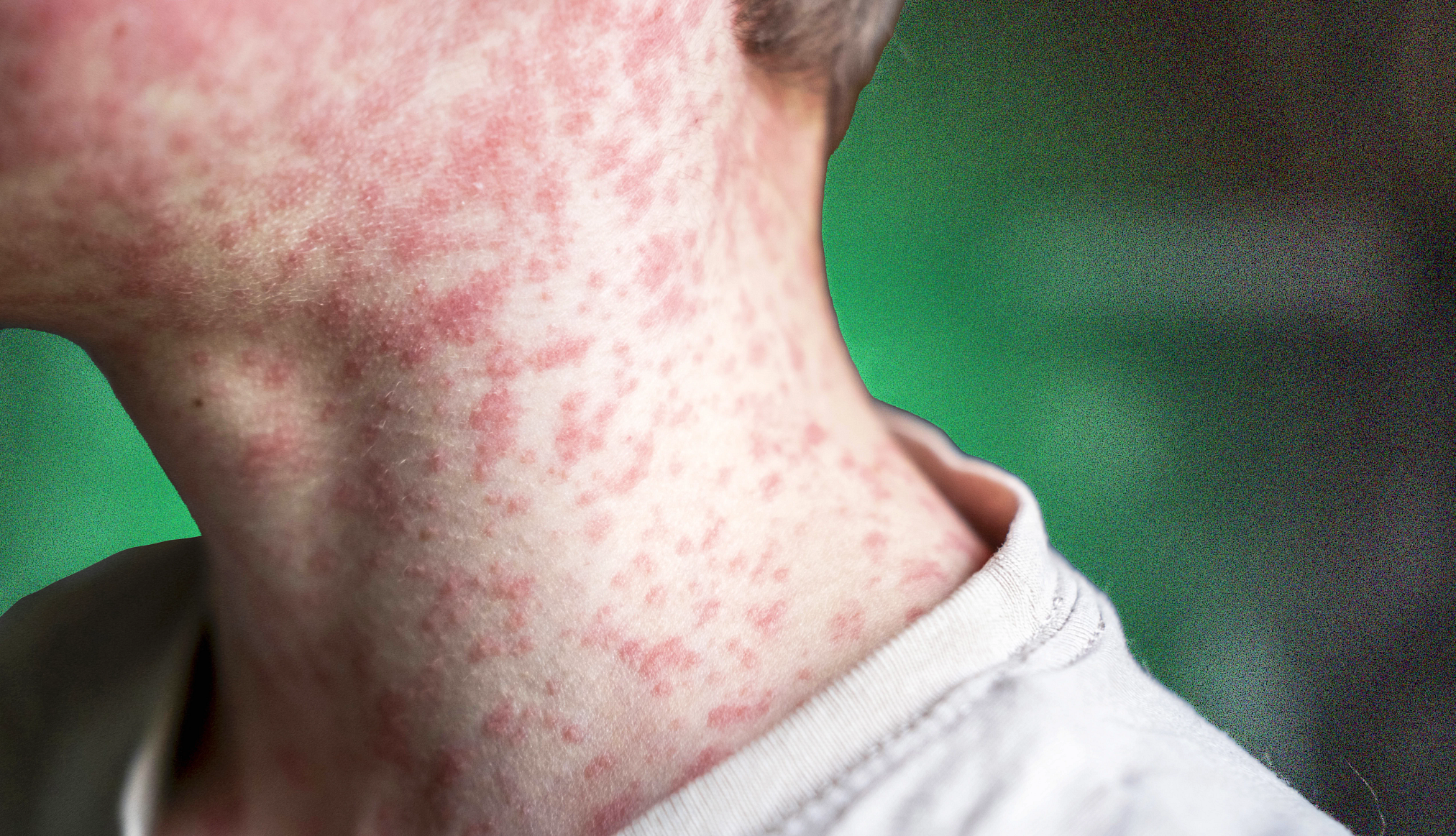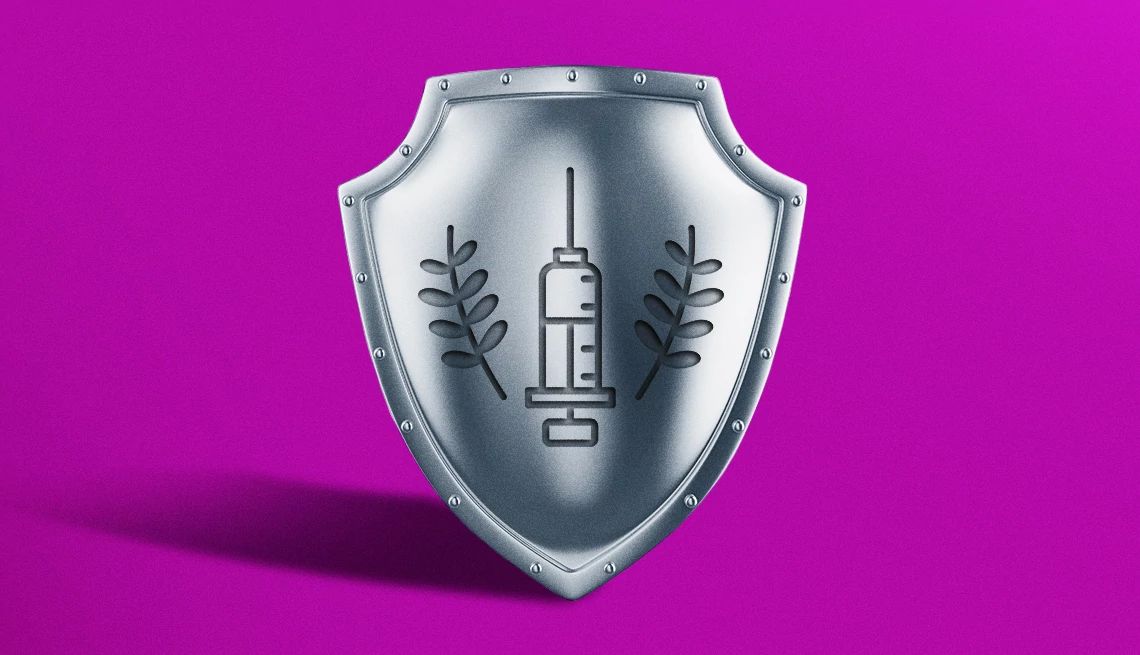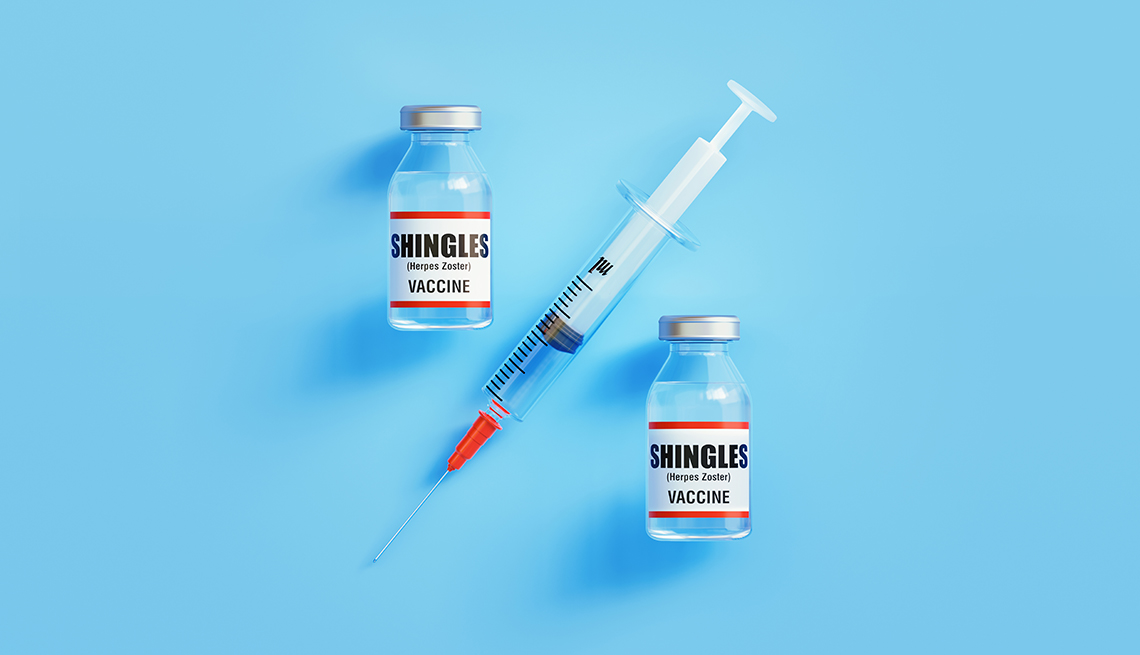AARP Hearing Center


It’s not just babies and youngsters who need a poke to protect against serious and potentially lethal diseases. Adults need shots too, especially as our immune systems weaken with age.
In fact, there are several vaccines needed after the age of 50, including some that are relatively new, like the RSV vaccine, says Morgan Katz, M.D., an associate professor of medicine at Johns Hopkins University School of Medicine.
Below are the vaccinations every adult needs, followed by two, for hepatitis A and B, that you need only if you have certain risk factors.
What won’t you see on the list? The chicken pox vaccine, since most adults already have immunity from childhood exposure to the disease, Katz says.
“Almost all adults over 40 have been exposed to chicken pox,” she says, noting that it would be “an extremely rare case” for an adult not to have been. That said, if you think you could be in that tiny minority, ask your doctor about getting the chicken pox vaccine as an adult.
For the rest of the list, you can get your necessary shots at doctors’ offices, pharmacies, workplaces, community health clinics and other locations. And most health insurance plans will pick up the tab, so stop in and let ‘em stick it to you.
1. Influenza vaccine
Who needs it: All adults, no matter the age.
How often: Once a year, usually in the fall. “The virus itself changes every year,” Katz says. “Researchers try to predict what will be the most common strain that season, then reformulate the vaccine accordingly.” Flu season typically begins in October and ends in March, so the CDC recommends rolling up your sleeve by the end of October, since it takes about two weeks after a vaccination for flu-fighting antibodies to develop in the body.
What you need: Adults 65 and older should make sure they receive a high-dose version of the shot. The options include:
- Fluzone High-Dose seasonal vaccine is an injectable vaccine that contains four times the antigen (the flu proteins that our immune system recognizes and attacks) of a standard-dose inactivated flu vaccine, to help create a stronger immune response.
- Fluad adjuvanted flu vaccine is made with an adjuvant, an additive that creates a more robust immune response.
- Flublok flu vaccine. This is a recombinant vaccine, which means it does not require an egg-grown virus and does not use chicken eggs in the manufacturing process. This may be a good option if you are allergic to eggs (the Fluzone and Fluad offerings are grown in eggs). This option contains three times the antigen of other standard-dose inactivated flu vaccines.
Why you need it: Each year, the flu is to blame for hundreds of thousands of hospitalizations and tens of thousands of deaths, and older adults are at higher risk for these serious outcomes. Fifty to 70 percent of flu-related hospitalizations occur among people 65 and older, according to the CDC, and 70 to 85 percent of flu-related deaths occur among this age group.
Talk to your doctor if: You’ve had a severe reaction to the flu shot in the past, are allergic to eggs, have (or have had) Guillain-Barré syndrome or have a fever. (In that case, you’ll likely be asked to wait until your temp is back to normal before you get the vaccine.)
Do you need a measles vaccine?
Measles outbreaks throughout the U.S. are causing many older adults to wonder whether they need a measles shot. The answer: You may.
Who doesn’t need one? The CDC says you don’t need a measles vaccine if you were born before 1957 or if you have had two doses of the MMR (measles, mumps and rubella) vaccine.
Who may need one? Health experts say people vaccinated before 1968 and those vaccinated between 1968 and 1989 may need an additional dose of MMR since they may have been given a less effective measles vaccine or may have only received one dose of MMR.
Talk to your doctor if you are unsure of your vaccination status. The CDC says there is no harm in getting another dose of the vaccine, even if you have prior immunity.
Parting shot: Even if you’re vaccinated, there’s a possibility you could get the flu. How well the inoculation protects depends on different factors, including your age and health status. That said, a flu vaccination may lessen the severity of illness if you do get sick. Research, including a study published in 2024, finds that flu vaccination reduces flu-related hospitalizations and deaths, including among older adults.
2. COVID-19 vaccine
Who needs it: It’s currently recommended for most adults 18 and older (parents of children ages 6 months to 17 years can get the vaccine in discussion with their doctor), and especially for people 65 and older, who are at increased risk for complications from a coronavirus infection. Recommendations for the 2025-2026 year could change, so stay tuned.
How often: Health officials haven’t set a schedule for COVID-19 vaccines, but it’s likely the shot will become an annual one for some people at least, much like the flu vaccine. Adults 65 and older, however, may need the vaccine more frequently. In previous years, fall and spring shots were recommended for older adults.
What you need: An updated COVID-19 vaccine from either Moderna, Pfizer-BioNTech or Novavax.

































































)
))
))




)





More on Health
Older Adults Still Feel Effects of COVID-19 Pandemic
Though much has changed since the early days of the COVID-19 pandemic, the toll is still felt — overwhelmingly by older Americans.How to Choose a Top-Notch Doctor as You Age
Physician Sharon Malone, author of ‘Grown Woman Talk,’ tells us what to consider when looking for the best care
Have COVID-19? Here’s How Long You Need to Isolate
CDC updates guidelines for people with a coronavirus infectionRecommended for You